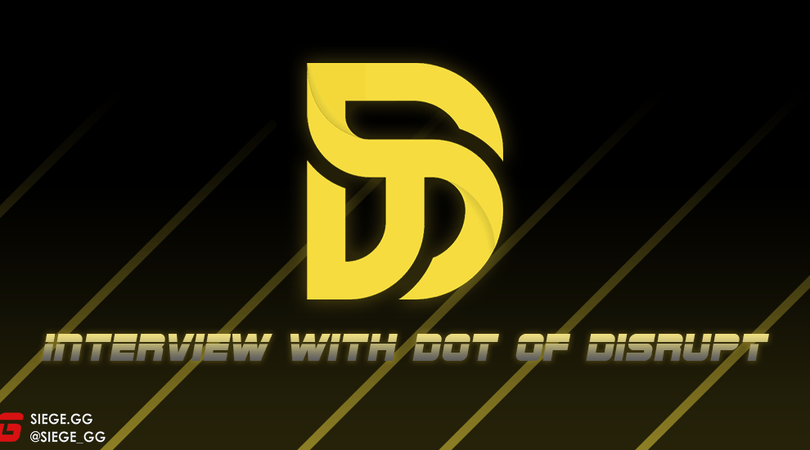
A lot of intriguing storylines have emerged from Dreamhack Austin 2018, but there has been no better “Cinderella” story than DisruptGG’s surprising run. Subverting all expectations, they managed a 2-0 victory over Evil Geniuses, a team that is still considered by many to be one of the best in the world despite their recent setbacks. Their success continued, beating Motiv8 -- another squad with Pro League experience -- by bouncing back after a loss on Consulate to win 2-1. Why are people surprised to see this DisruptGG topple other more well-known and experienced teams? Well, it might have something to do with the fact that they’re somewhat of a makeshift team known primarily for content creation, they clawed their way from the open Bring-Your-Own-Computer (BYOC) portion of the tournament and the majority of their players are under 18 years old.
We had a chance to speak with DotDash, their 17-year-old In-Game Leader to learn more about how DisruptGG has made it this far.
This interview has been lightly edited for for clarity and brevity.
Congratulations on the wins against Evil Geniuses and Motiv8. We’d love to introduce you and DisruptGG to our readers. Can you tell us a little bit about your team -- how did you guys come to form this DisruptGG squad for Dreamhack?
What do you think your victory against a North American juggernaut like Evil Geniuses says about the skill gap between Pro League and other various forms of competitive play, like Challenger League or CCS? Do you think Evil Geniuses just had a bad day?
High school students have a lot of obligations (school, and sometimes sports or part-time jobs). Do you think younger players are at a disadvantage when compete with pro players?
You mentioned that you had 6 days to prepare ahead of Dreamhack. How and where did you focus your preparations, considering the Open Qualifiers with mostly unestablished teams, and even what felt like late information about which group each BYOC winner would enter?
Your match against Motiv8 was off-stream. For those who weren’t able to watch you play in Austin, how would you describe that match?
In both of your matches, how did you guys approach the ban phase? A number of us watching were a bit surprised to see Clubhouse make it through since it’s a map that Evil Geniuses are known for playing well.
What do you know about Beastcoast? How have you prepared for them?
I’d like to know a little bit more about you, Mason. When did you get into competitive Rainbow 6? When did you start IGL’ing?
Has playing Siege competitively helped you in other areas of life?
You recently turned 17. The current Ubisoft and ESL contract only allows players over 18 years old to participate in Rainbow 6 Pro League. Where do you see yourself in a year?
Overall, no matter how the rest of the day goes DisruptGG has proven that younger players have the game knowledge, talent and confidence to compete at a high level. It’s good that the rules of Dreamhack allow those that are underage to compete in a LAN environment -- in many ways DisruptGG’s story embodies the entire premise behind Dreamhack events. However, now that we’ve seen that the kids can play, it raises the question: why prevent capable underage players from most competitions? Potential legal conundrums relating to prize money aside, for it feels like ESL and Ubisoft may have missed an opportunity to more actively cross-pollinate underage players with experienced pro players to help cultivate teamplay and communication skills for the next generation of Rainbow 6 Esports competitors. Fortunately, community-led alternatives such as CCS (Championship Series) are doing an excellent job filling that gap.
